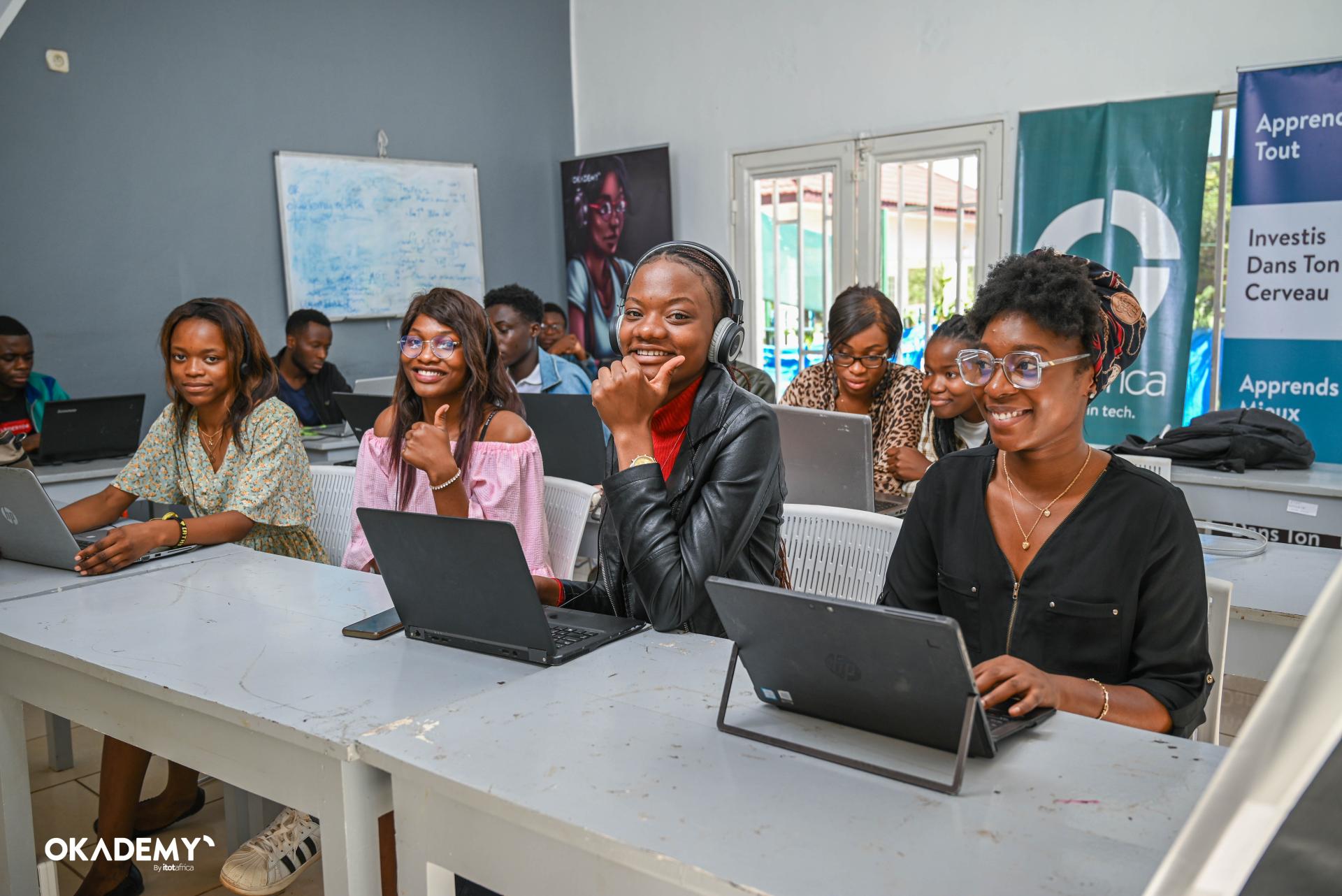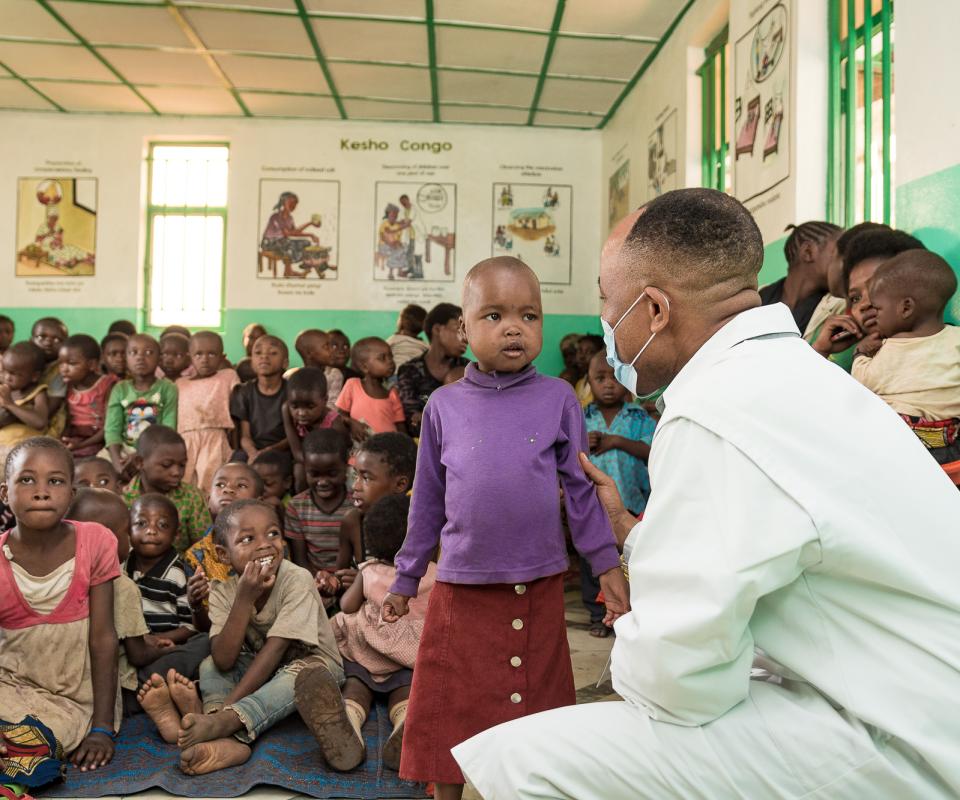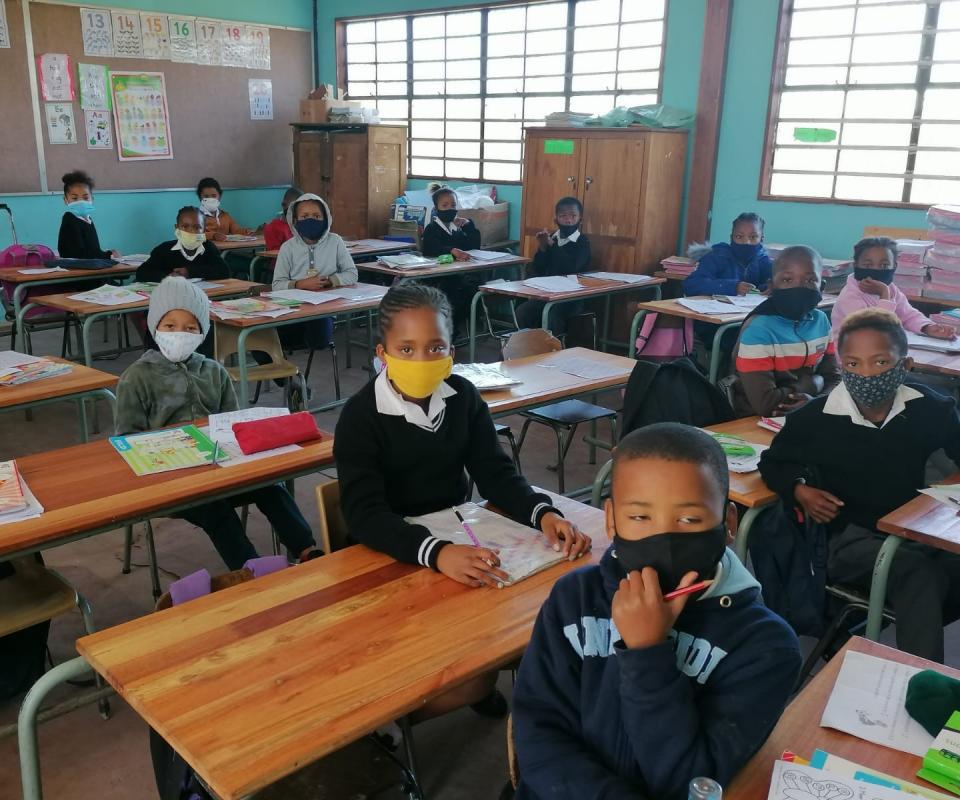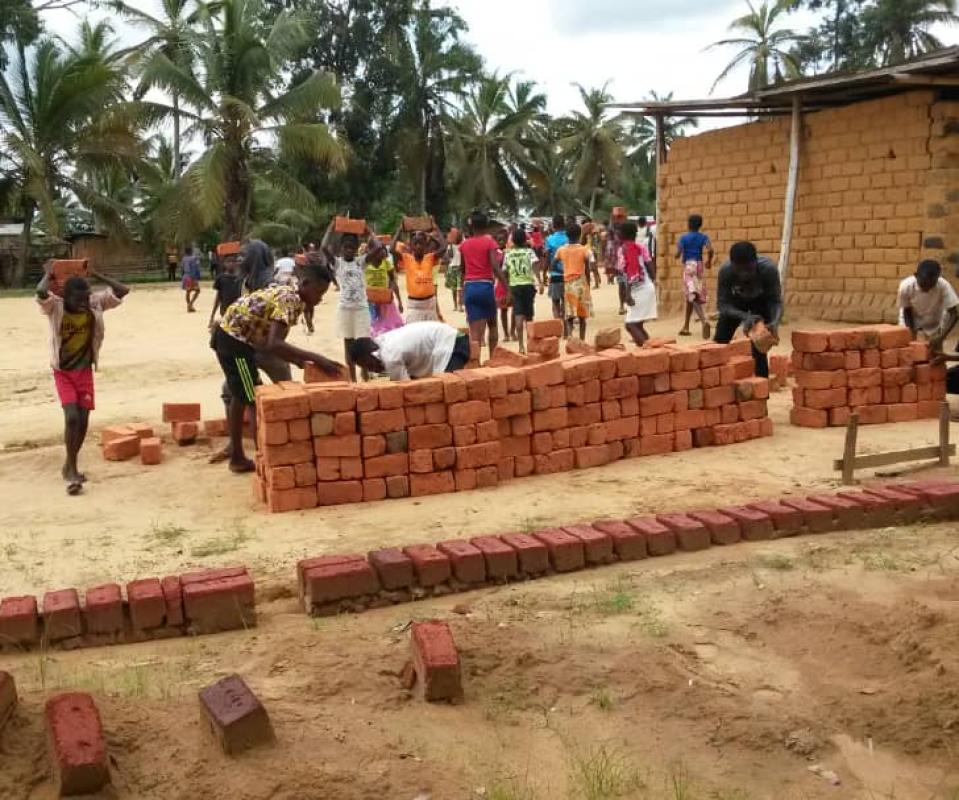
Helping Congo to jump on the digital train
As a digital training company, Itot Africa does not have an easy ride in the province of Haut-Katanga, DR Congo, where unreliable internet access, problems with electricity and a government that missed the digital train all create obstacles. Nevertheless, a young team of people who are seeking to help their compatriots to find jobs by equipping them with 21st century skills, has made some impressive achievements.
Back in 2017, Samy Mwamba and his friends were final-year software engineering students at Lubumbashi University, in the southeastern Democratic Republic of Congo. With some apprehension, they noticed that graduates in the years above them – who were all digital wizards – were still not finding work. How was that possible, in a world hungry for IT talent? Had they not acquired the right skills? Was there a lack of confidence in their abilities? Were companies preferring to bring in employees from other countries?
The friends decided to take their future into their own hands and founded Itot Africa. “Initially we simply distributed our apps and ideas to universities and government bodies,” says Samy Mwamba. Nevertheless, they still got no work. Until one day they spotted a Facebook advertisement from a Canadian company looking for IT staff to work remotely from French-speaking Africa. Impressed with Itot Africa’s help, the company asked Itot to send through more profiles.
These young people still did not have the skills that would be required for this customer, and the university refused the offer from Itot Africa to organise a suitable module, so the team suggested to the Canadian company that they could put together a training course themselves. “They paid us to create the course, and then they selected the best students. “And with that,” says Mwamba, “We had our mission: to help create digital jobs in Africa.”
Itot Africa has consistently kept in mind the needs of citizens, companies and organisations in Congo as they have adapted and extended the courses they offer. They have received support in doing this from the Thibault Fund and the New Generation DRC Fund, managed by the King Baudouin Foundation. “We’ve evolved into a training academy for anyone who wants to learn digital skills,” says Mwamba.
When COVID-19 hit in 2020, Itot Africa was fortunately able to rely on the KBF once again. “Our foreign customers, which are mainly small businesses, were shutting down and things became very difficult financially. We set up our own participation fund for anyone who wished to make a contribution, alongside our support from the Foundation. We are one of the few new companies that survived the pandemic.”
It was COVID-19 that helped Mwamba and his colleagues to understand for the first time what was needed. “Up to then we had mainly focused on advanced digital skills, so that IT professionals could find work, but during the COVID-19 crisis we noticed that even some lawyers did not know how to send a simple email or make a video call. You can graduate from university here without having ever touched a computer.”
Computers, desks and chairs were all purchased with support from the KBF, allowing the training academy to start up. “We became increasingly well known in the province. One specific aspect was that you don’t necessarily have to train for a whole year. You can also train for an hour, a week or a month in order to acquire one specific digital tool,” says Mwamba.
The pandemic also accelerated their work in another area. “We started to develop the first online learning platform in French for sub-Saharan Africa. Anyone can use it to take courses. If we find that there is a lot of demand for a course that we don’t have yet, we take some time out in the studio to create it and then we put it online.”
“Our aim is not just to recruit people, we want to really prepare an individual for specific jobs. So if you want to become a website builder, we have developed a learning pathway that will get you there.” More programmes are still being added, with support from the New Generation DRC Fund, which aims at women and young people.
“We were hearing from all sides that women do not want to take digital courses. That is because they are not approaching it in the right way. A person who has developed a passion for patisserie and learned to make a living from it does not need to be trained as an IT professional. You just have to make sure she acquires the digital tools she needs to allow her business to grow. In Goma we have used this approach to support female micro-entrepreneurs.”
The barriers facing young people are different. “Many training centres want to train young people to become employees, but to get a job there must be companies that are recruiting, and here there are none. Starting your own business is not something you can do in five minutes either. We therefore give them digital and technical skills such as website building that allow them to work as a freelancer until they can find a job or start a business.”
With support from the KBF, Itot Africa has so far trained more than a thousand people in person since 2019. A further 4,000 have taken courses using its online platform and over 150 people have found jobs or started work as freelancers. New programmes are also being created: teaching farmers to set up an online sales platform, or to use meteorological data to improve their crop yields. Restaurants pour le cerveau, small local training centres where people in the province with limited money or no computer can have access to an internet connection and the online platform for a low cost. In-house training courses are also being provided at the university.
Itot Africa wants to move even faster. They would be able to do so if the government were willing to collaborate. “Our first ministry for Digital Development only came into being last year. How can you explain to government bodies the importance of digital to help millions of people into jobs, if they don’t understand it? Up to now we have still had no collaboration or support. There is no legislation on data management and privacy, which causes problems for young people who compete for international contracts. There is no smooth online payment system. During the elections in 2018 the internet was shut down for months on end. New laws need to prevent that from happening again.
In May, with support from Belgian development collaboration ENABEL, Itot Africa opened a digital hub where 100 users will have guaranteed high-quality internet and electricity for three years, allowing them to work without interruptions. The company’s online platform has now also been extended to Uganda, Côte Ivoire and Burundi on a franchise basis. To cap it all, Itot Africa has even won a contract in the United States, birthplace of tech giants. “We will be teaching digital and technical skills to the Black community in Minneapolis, where they often don’t have enough money to go to university.”
“You can graduate from university here without having ever touched a computer.”
Whatever it does, Itot always remembers its mission: to help as many people as possible to find digital jobs. It will therefore be extending its training centre in the coming years to include all 21st century skills – technology, robotics, 3D printing, digital – working alongside mining companies and other businesses.
Other stories
Inspiring engagement!

Using data to help combat malnutrition
Africa
"Official figures state that one in two children are chronically malnourished, but that’s just the tip of the iceberg; the real figures are even higher."
Other calls

Prosthetics in nine provinces of the Democratic Republic of Congo
Improving access to quality prostheses and related care in the DRC
OngoingOther philantrophy
Sprinkle (Friends of Fund)
Philanthropists support projects of the asbl Sprinkle, a shelter for Aids orphans in South Africa.

Michiels - El Aisati (Fund)
Support education and poverty alleviation initiatives in South Africa and Morocco, which contribute to improving the living conditions of the most vulnerable people.

Kitumaini (Fund)
Financing of projects initiated by local actors for ‘light’ infrastructure projects (schools, hospitals, etc.) and initiatives that meet basic community needs.